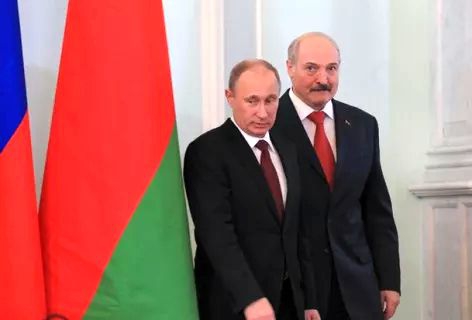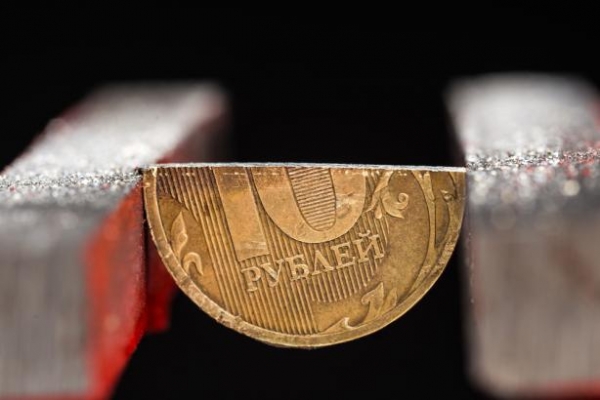
The Eurasian economic Union (EEU) have embarked on the creation of a common market of oil and petroleum products by 2025. On Friday, may 20, the relevant Convention took the heads of governments of the Union countries held in the Yerevan session of the intergovernmental Council of the EAEC.
The document will be presented to the heads of the EAEU member States in late may in Astana. The concept is an essential — really, the whole framework document. According to him, the EAEU members needs by 2025 switch to full market prices for oil and oil products in mutual trade, including through exchanges.
Transportation tariffs by pipeline and railway — should be non-discriminatory and quality requirements of oil and oil products is unified.
It is assumed, moreover, to abandon the existing system now balances (pre-agreed annual volumes) and export duties. In addition, participants must “within bandwidth” to ensure the supply of oil and petroleum products from outside the EEU as in any state of the Union, and for export abroad.
In other words, we are talking about a fully liberalised market. Over the next year, the EAEU members should agree on a programme of creating a common market, and in the years 2018-2023 to implement it gradually so that in 2024 to conclude international agreement on the General oil market and the common rules of access to transport infrastructure.
In fact, the movement in this direction seems to be a matter of national security. According to some experts, a common system of oil markets is a tool for the maintenance of national currency, volumes of reserves and guarantee of implementation of social programs and obligations.
What does Russia gain from a common market of oil?
— The creation of the oil market shifted the EEU for the year 2025 for a reason — the current system of relations between players are extremely complex, and each of them is afraid to miscalculate during its “reboot”, — said the head of analytical Department of national energy security Fund Alexander Pasechnik.
For example, in Belarus we supply oil, of which 40-50% is returned to us in the form of petroleum products. Other petroleum products Belarusians either use themselves or send on export. Now, with Minsk, we have differences: in recent years we have not receive Belarusian oil products, since domestic market price situation develops in such a way that the Belarusians more profitable to export to the European market.
Or to take Kazakhstan, which at the expense of Russia covers 40% of its needs of petroleum products. By the 2018-2020 year, the Kazakhs will complete the reconstruction of its refineries, and will be able to cover not only all their internal needs, but also to increase the export of petroleum products to neighboring republics.
Thus it is necessary to understand that Russia in any case will remain the main donor to this project — the party that will subsidize the partners in the EEU. Yes, we will receive some preferences in return. For example, we are interested in the transit through Belarus of oil and oil products at low rates, and in this case the exchange “grant preferential treatment” is quite possible and justified. But with other partners in the EEU such preferences can be much less significant.
I will say more: in my opinion, in the long term — purely economic — we will spend on the project EAEC, more and more.
“SP”: — What’s the point in creating a common market of oil?
— First of all — political. The more we subsidize the economies of our partners in the EEU, the more profound will the process of integration with them, and the stronger our political influence on them.
However, to estimate the size of political capital, which will acquire in this way Russia is possible only with the years. On the other hand, Moscow understands that a Holy place is never empty. If you do not promote integration, albeit at the cost of the donation, with the same Belarus and Kazakhstan, they try to reach out to someone else. The same West, which has already dragged on its side Ukraine.
Therefore, I believe that the strategic format of our donor intervention in the EEU must be justified.
“SP”: — But we already act as donors in relations with Belarus and Kazakhstan. What’s wrong with the current system of exchanges, why she demanded a “reset” in the format of the EAEU?
— The current system of exchanges is very skewed — in Russia it is much more unjustified costs. Yes, Russia has the primary responsibility for the integration process, and we also bear the burden of the neighbouring republics. But in this relationship it is important to maintain certain boundaries.
To some extent, the “reset” is a way to increase the impact of donor investments in Russia. But to accurately assess the impact of this “reset” is now impossible. I do not exclude that by the year 2025 the conditions for the development of the oil markets will converge, and will be easier for us to accept uniform standards for the oil market of the EEU, and to assess the benefits of each of the parties on the introduction of this market.
“SP”: — a Common market of oil would protect the national currency of the EEU countries from falling into a crisis in 2014?
— Hard to say. For example, when oil prices were falling rapidly, and we have had the devaluation of the ruble, Belarusian gasoline almost all began to leave for export. Commerce for Minsk was higher a gentleman’s commitments to sell parts of gasoline of the Russian oil on territory of the Russian Federation.
I think overall the oil market to some extent could protect Russia from such actions of the partners. But he is unlikely to seriously would support the national currency, in the end, not that it is created…
— The General oil market is one of the mechanisms of integration and strengthen economic ties within the Eurasian economic Union, — said the development Director of the energy development Fund Sergey Pikin.
— The main advantage of Russia before its Union partners — of course, its energy: oil, gas, electricity. Russia is one of the largest suppliers of these resources in the world, and thanks to them, the coordination of all the EEU countries.
How this scheme works, it is seen on the example of Belarus. Minsk is buying oil from Russia, refines it at its refinery supplies oil products to Western markets, and earning some money.
The Convention on formation of common market of oil and oil products makes available “Belarusian” scheme for any member of the EAEU. The participant will be able to buy oil from Russia without any customs duties, Refine it, and either use for their own needs or to sell.
In other words, the idea is to make energy a driver of integration, not in words, but at the level of the economy. The idea is, I note, seem sensible, since only economic alignment of interests makes the Union of full value.
“SP”: — it is beneficial to us Economically?
— It depends. For example, our partners-the Belarusians have bought the oil, and put the processed products abroad. In fact, the same could make Russian oil companies with, by the way, the oil refinery on the territory of Belarus.
The economic benefit of the Russian Federation in this case is not too obvious. However, by 2025, when the oil trade within the EEU will be serious institutional changes — for example, the transaction will be concluded on the exchange, — to accurately calculate this benefit will be easier.
“SP”: — Purely politically, the common market of oil gives us control over other members of the EEU?
— Of course. From the countries-participants of the EAEC only Russia and Kazakhstan possess energy volumes sufficient for export, the rest they import. This alignment will largely help Moscow to keep the contours of the EEU.
In fact, the political benefits are in first place. It is clear, for example, that the overall oil market will not increase the consumption of “black gold” in the EEU, and thus does not affect the global oil market. But it will cancel customs duties on oil and petroleum products within the EAEU, and will introduce unified rules of trade “black gold” — and this is a lot…








